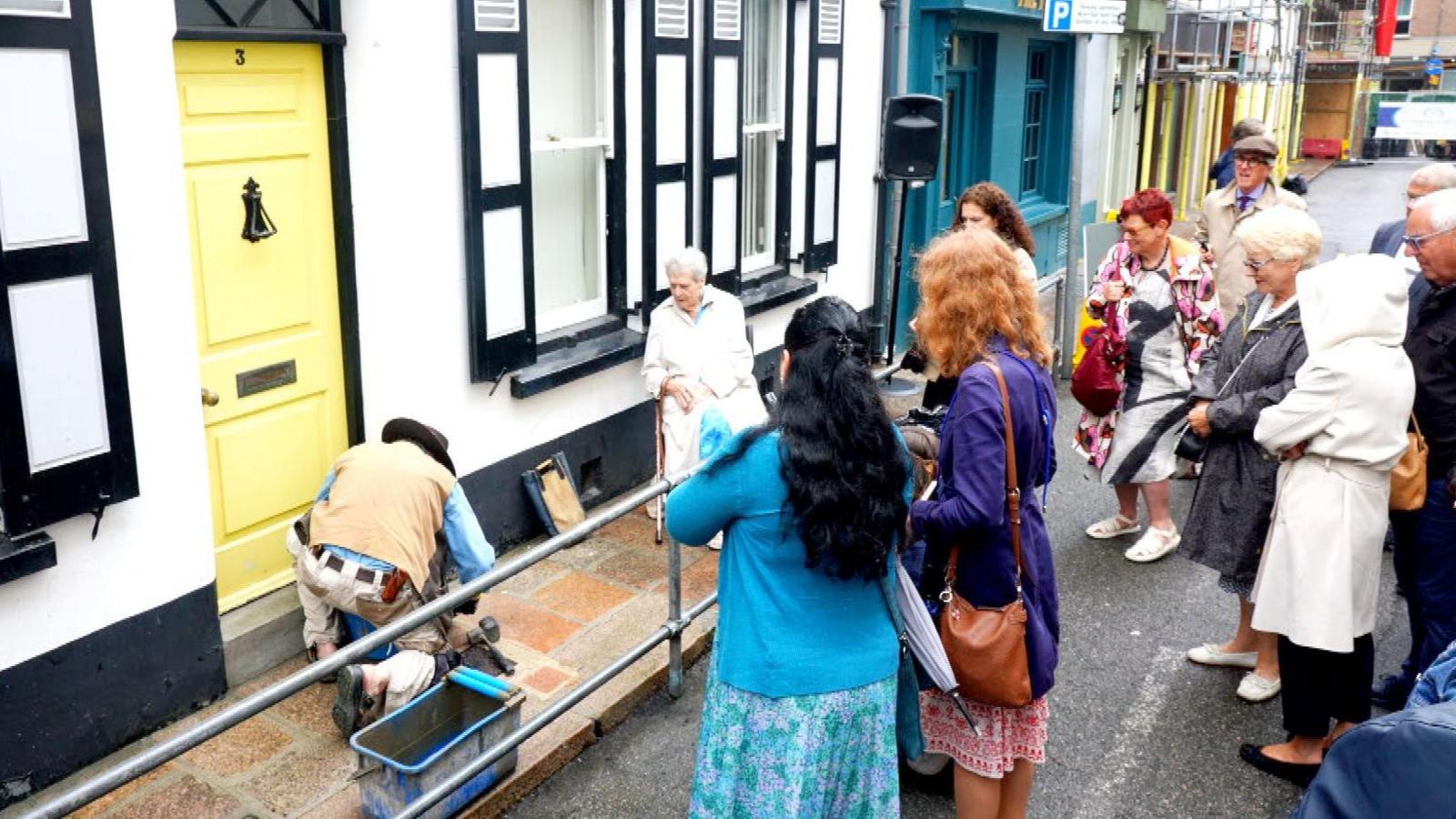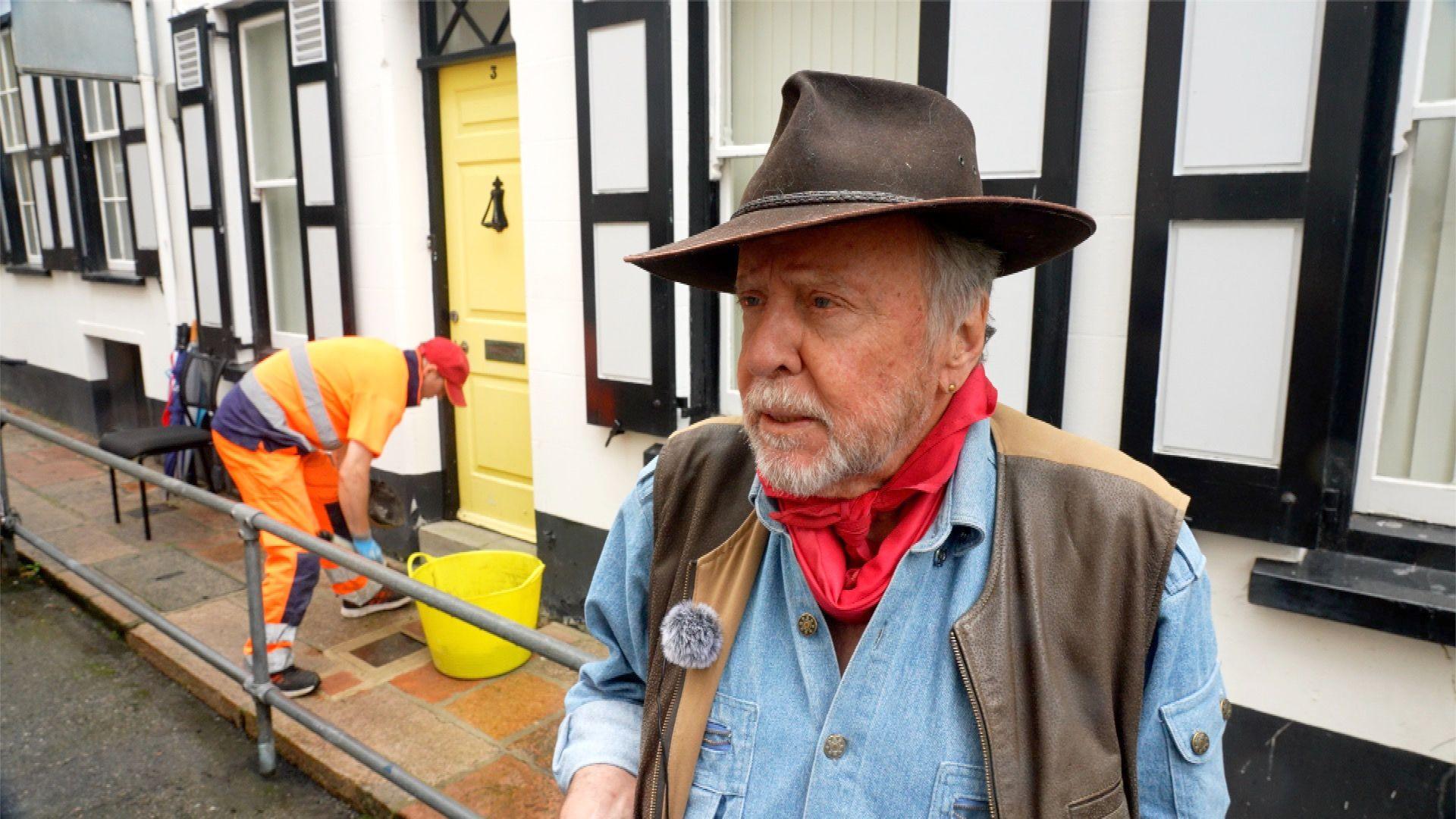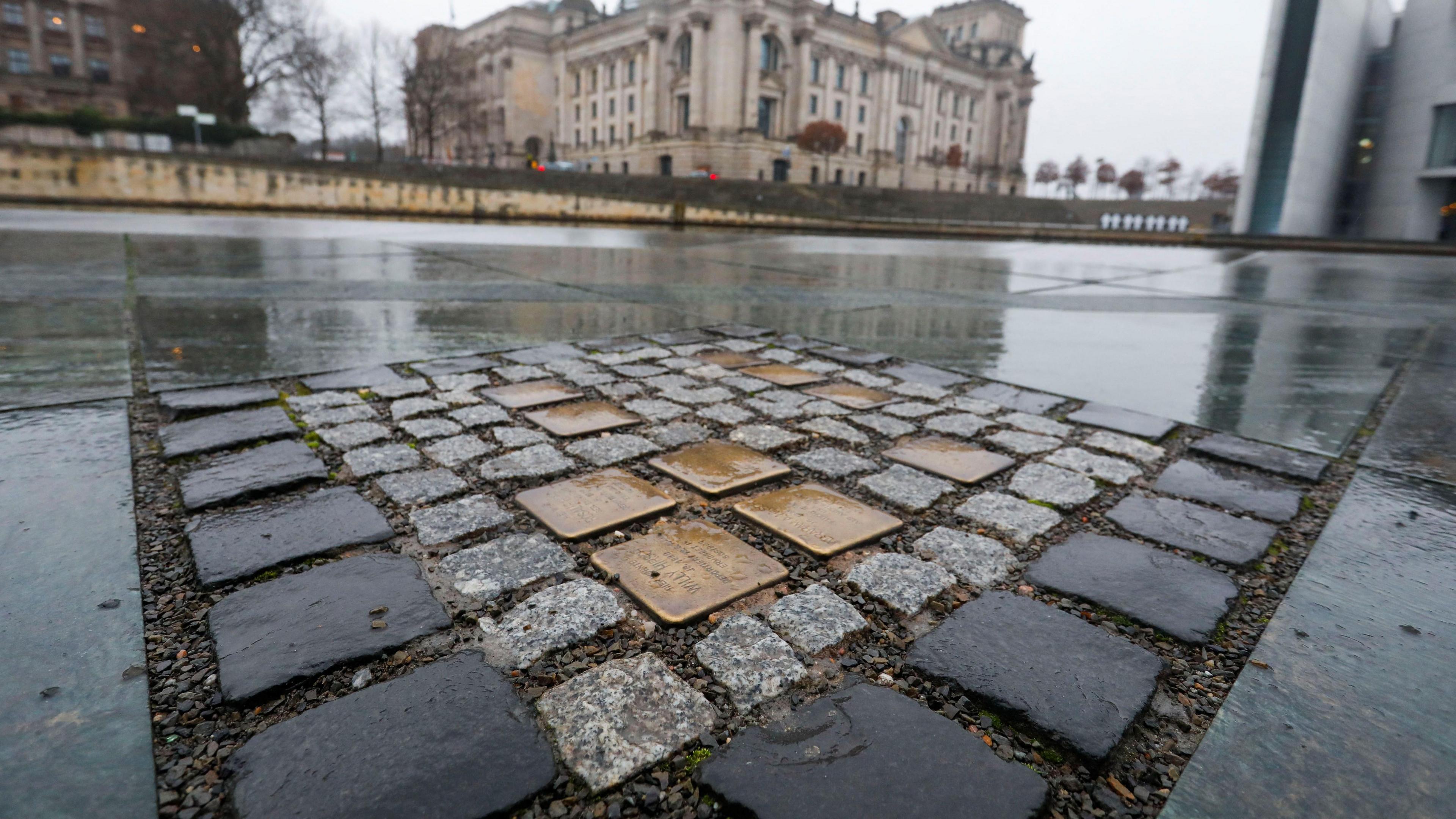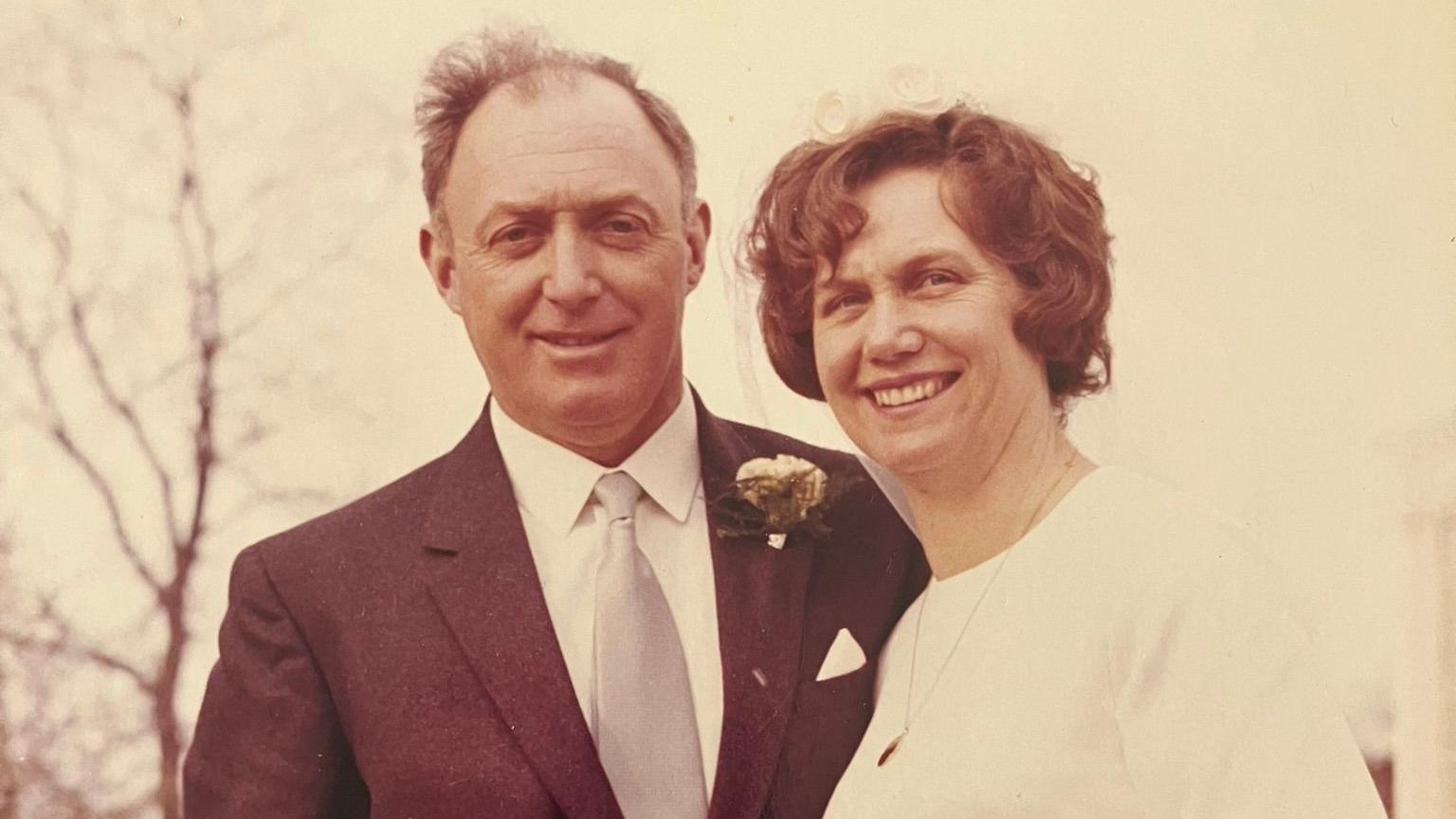Stones laid to remember Jersey victims of Nazism

Stolpersteine being laid outside the house of Gordon Prigent
- Published
Twenty Stolpersteine or stumble stones have been laid in Jersey to remember victims of Nazism in the island.
More than 100,000 of the cobble stones have been inserted into public pavements and roadways at the doorstop of the last place where victims and survivors lived.
These were first laid in the island, which was occupied by German forces for five years during World War Two.
The stones were laid after an appeal by Jersey Heritage for the families of those being remembered to come forward.
Iris Prigent, whose late husband Gordon was a conscripted worker sent to Alderney, said he had "suffered greatly as a result of being sent to Alderney for refusing to work for the occupiers".
"I think he would be pleased to think that he'd been remembered and not just him, but everybody else that was in the camps with him."
The Stolperstein in his honour has been placed in Hope Street, St Helier, which was his address at the time.

German artist Gunter Demnig, who started the project in 1992, visited the island for the installations
German artist Gunter Demnig, who started the project in 1992, visited the island for the installations.
He said he wanted to return the soldiers to their home as a mark of respect.
"The main idea was to bring back the names," he said.
Mr Denmig said a priest told him at the beginning that his stones would not "reach the millions - but you can start small".
"Now they are in 31 countries in Europe and more than 106,000 stones - it's only a small number but I think as a symbol it is OK," he said.
'Commemoration for survivors'
The project has been led by Dr Gilly Carr from the University of Cambridge, with the help of Chris Addy, from Jersey Heritage.
Mr Addy said the stones would "provide a moving commemoration for survivors of the occupation".
He said: "We hope there might be an opportunity in the future to add further stones to remember people who lived through these difficult years."
Those remembered on the stones include those persecuted for their Jewish origins or who went into hiding for that reason, those convicted of acts of resistance, defiance or attempted escape, individuals sent to Alderney as conscripted labourers and those sent to internment camps in Germany for being British born.
The plaques have been placed in locations connected to them.
Who are the honoured?
Hedwig Bercu - 28, New Street, St Helier
Nathan Davidson -35, Stopford Road, St Helier
Emile Du Bois - 4, Samares Avenue, St Clement
Victor Emanuel - 13, Royal Crescent, Don Road, St Helier (plaque on pavement)
Antony Faramus - Windsor House, Val Plaisant, St Helier
Walter Gallichan - 17, Manor Park Estate, Almorah, St Helier
Michael Ginns - Les Mars, La Rue Maraval, Grouville (now part of the Beausite Hotel)
Hyam Goldman - La Petite Ruche D’Or, St Peter’s Valley, St Peter
Peter Hassall - Northfields, Byron Lane, St Helier
Harold Le Druillenec - Westdene, Langley Avenue, St Saviour
Esther Lloyd - Wye Dean, Georgetown Park Estate, St Saviour
Suzanne Malherbe and Lucy Schwob - The Anchorage (formerly La Rocquaise), St Brelade’s Bay
Emma Marshall - Tiverton, 13, Chevalier Road, St Helier
John Max Finkelstein - Mon Desir, Bagot, Georgetown, St Saviour
Joe Mière - 25, Midvale Road, St Helier
Erica Oljenick - 8, Overseas, Dicq Road, St Saviour
Gordon Prigent - 3, Hope Street, St Helier
Jean Marie Rossi - Ypriana, 3, Chestnut Avenue, Maufant, St Saviour
Ruby Still - Kenton, Victoria Road, St Clement
Follow BBC Jersey on X (formerly Twitter), external and Facebook, external. Send your story ideas to channel.islands@bbc.co.uk, external.
Related topics
- Published26 July 2024

- Published1 May 2024
